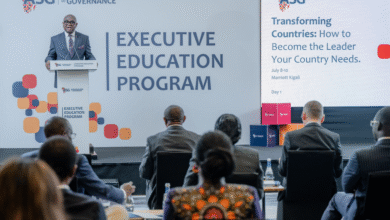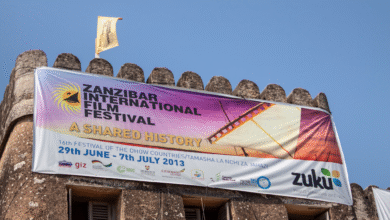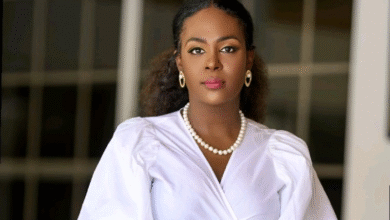AI and education : the seeds of an inevitable revolution
Artificial Intelligence (AI) is the latest buzzword in the digital world, and it is gaining ground across the board. The education sector is likely to be the most affected. In Africa, while initiatives are still in their infancy, collective awareness should fuel the revolution and put AI at the heart of education for good.

By the editorial staff
While it’s true that Africa is lagging behind the developed world in terms of the digital revolution, we have to recognize that a real awareness of the challenges of artificial intelligence is in the process of reshuffling the deck. Salutary initiatives are being launched in many African countries, although they are still in their infancy. In Senegal, one of the largest gatherings dedicated to digital technology got down to discussing this topic. It was the second edition of the Rentrée Numérique, held in Dakar in mid-September. Just in time for the start of the new school year.
According to Ibrahima Nour Eddine, a digital specialist and managing director of Gaïndé 2000, a platform dedicated to the dematerialization of customs procedures in Africa, artificial intelligence is on the verge of overturning a number of habits. A dynamic that is not going to stop. That’s why he believes that both public and private authorities must take steps to ensure that they are not left behind. « This technology that is taking shape will have an impact on our organizations and our economies. It’s important to look at the issues and see how we can integrate it. The biggest risk is that change is happening very fast and it’s not just happening in one place. Whether we embrace it or not, it will affect our lives. We need to pool our resources. There are initiatives here, but they are scattered, » he said.
Education, the inevitable revolution
Experts agree that if there is one sector that stands to gain the most from AI, it is education. Audrey Azoulay, Director-General of the United Nations Educational, Scientific and Cultural Organization (UNESCO), made this point in an op-ed. But for her, there are a number of challenges to overcome, such as energy. « The lack of electricity prevents productivity from improving and affects the level of education in the sense that poor electrification does not give young people the opportunity to use their computers for those who have them, to do research or to develop start-ups. Because computers and many other AI tools need energy to work, » she stressed.
This challenge is compounded by the issue of internet access. Bryan Gilmour is a digital consultant. For him, the biggest challenge is access to a quality internet connection. « It’s the pinnacle of digital. It’s the cutting edge of technology. We need a framework for AI, » he says.
Doubling down
The first demonstrations of ChatGPT, for example, have given a glimpse of what AI can bring to education. But to get there, it seems more than necessary to set up a number of systems and to take the plunge. This is the conviction of the president of the Organisation des professionnels des Tic in Senegal (OPTIC). For Antoine Ngom, although computer courses are becoming increasingly important in schools, they are still theoretical. According to him, this makes it difficult to become familiar with AI. For this reason, it is important for the authorities to create the right framework in schools, while at the same time building the capacity of teachers. « The real danger is to say we can’t do what other countries are doing. Properly organized, with all the right ingredients, AI can be a tool that enables developing countries to catch up with the best in the world, » he says. Dia Ndiaye, a Senegalese computer science student in France, believes that even though initiatives are in their infancy, there is no link between the business world, research centers and training schools in Africa. And yet, he says, for training to be meaningful, it must meet the needs of businesses. « We need to move towards a link between the labor market and training schools, » he argues.
To meet all these challenges, Dia Ndiaye believes it is up to the public authorities to set the framework. « The biggest mistake is to neglect training at grassroots level. Don’t wait until university to introduce young people to digital jobs. We need to start earlier, in secondary school, and include some courses on programming languages or some basic concepts in the curriculum for young people. Then, when they get to university, we need to reinforce these digital and artificial intelligence skills. So, we need to equip young people with the necessary skills and take the appropriate measures, » he recommends.
Moustapha Diakhaté, former adviser to the Senegalese prime minister, believes that if African education systems fail to embrace technology, « we will no longer be useful to our productivist and utilitarian humanity. We are probably playing our last card. Everything is speeding up; our rigid systems are outdated and some of the players do not even understand the challenges of tomorrow. It is imperative that we speed up the implementation of innovative teaching and learning practices that promote a minimal mix of subjects ».
Private initiatives… while waiting for governments
The Dakar Institute of Technology with its artificial intelligence program, the UNDP Accelerator Labs, which identifies innovative projects by young people under 28 to help them develop their skills in artificial intelligence… So far, the concrete initiatives to promote this are private initiatives, while public programs are still in their infancy. Public authorities seem to be more concerned about ethical issues. At a meeting he chaired in Dakar on the topic: « Opportunities and Challenges of Artificial Intelligence in the Senegalese Education System », the President of Senegal, Macky Sall, certainly called for « seizing the opportunities of artificial intelligence without losing ourselves in the race to the bottom of our society and our education system ». … », while pointing out « the excesses of artificial intelligence, which, in his opinion, has become, through its misuse, a factory of fake news, spreading deception, manipulation, hatred, radicalism and violence at great speed ». In his view, this shows « the extent of the complexity of the task we face if we are to seize the opportunities offered by artificial intelligence and meet the challenges it poses, the first of which is to avoid a levelling down of our society and our education system ».







